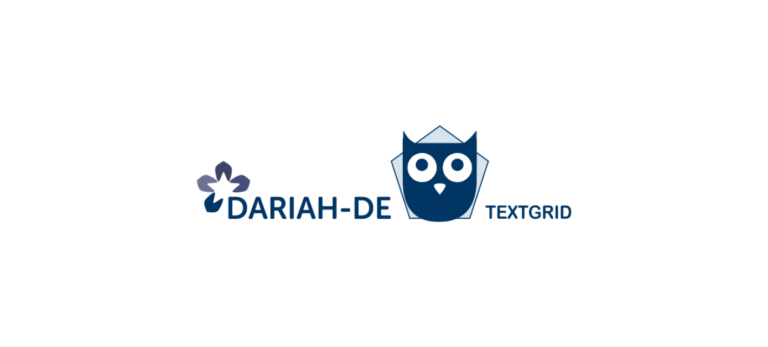
Die Virtuelle Forschungsumgebung TextGrid ist optimiert für die digitale Erschließung geisteswissenschaftlicher Quellen und deren langfristige Archivierung in einem Web-Archiv, insbesondere
Short description of the project
The Research and Teaching Corpus of Spoken German (FOLK) is continously being built at the Leibniz Institute for the German Language since 2008. The corpus contains audio and video recordings of everyday natural interactions in German from various areas of social life (work, leisure, education, public life, services, etc.). The aim of FOLK is to provide a large and broadly diversified database for analysing German spoken language in natural interaction. The data is transcribed and further annotated and documented according to modern corpus annotation standards and made available to the scientific community via the Database for Spoken German (DGD).
Project content
While various well-stratified corpora of written German are now available to the scientific community, there is still no comparable collection of spoken German. Therefore, the IDS has continously been building the Research and Teaching Corpus of Spoken German as a large corpus that contains audio- and videorecordings of spoken German everyday interactions in various areas of social life (e.g. work, leisure, education, public life, services, etc.). The data is transcribed and further annotated and documented according to modern corpus annotation standards and made available to the scientific community via the Database for Spoken German (DGD).
The corpus offers researchers the opportunity to analyse a variety of scientific questions while using data that is available to everyone in the scientific community in the the same way. To date, many studies in Interactional Linguistics, Conversation Analysis and Corpus Linguistics already use the corpus as the sole basis for analyses or as a point of comparison. FOLK provides cultural and media studies with insights to a wide range of the reality of social interaction in Germany. Data from the FOLK corpus can also serve as material for teaching German studies and German as a second language at universities.
The FOLK database consists of audio and/or video recordings of authentic interactions. The interactions are transcribed with the transcription editor FOLKER in accordance with the cGAT transcription conventions (conventions for computer-assisted transcription on the basis of the GAT2-system for transcribing talk-in-interaction) as minimal transcripts in literary transcription. The transcripts are aligned with the audio recordings, so that the corresponding audio excerpt is immediately available in the DGD for each passage of a transcript. An orthographic normalisation, a lemmatisation and a part-of-speech tagging are added as further annotation levels to improve searchability. Comprehensive contextual data on the circumstances of the interaction and socio-demographic data of the speakers involved are also documented as metadata for each conversation. All recordings, transcripts, and metadata can be viewed and systematically searched via the DGD. In addition to a full-text search, there is a structure-sensitive token search on transcript data with the option of filtering the search results using metadata.
The corpus is continuously being expanded and additions to the corpus are regularly made available via the DGD.
FOLK is part of the Archive for Spoken German (AGD) in the ‘Oral Corpora’ programme area of the Pragmatics Department at the Leibniz Institute for the German Language (IDS) in Mannheim. The IDS is the central extramural institution for researching and documenting the German language. As a member of the Leibniz Association, the IDS is funded by the federal government and the federal states (especially by the state of Baden-Württemberg)
Dr. Silke Reineke
folk@ids-mannheim.de
Find out more at
agd.ids-mannheim.de/folk.shtml
Add your DH research project to the project showcase by submitting a short project description via the web form. Enter project data, a brief description, a graphic or visualization as well as a detailed description of the project content with technical assignment, addressees, added value, project managers, funding information and duration.

Die Virtuelle Forschungsumgebung TextGrid ist optimiert für die digitale Erschließung geisteswissenschaftlicher Quellen und deren langfristige Archivierung in einem Web-Archiv, insbesondere
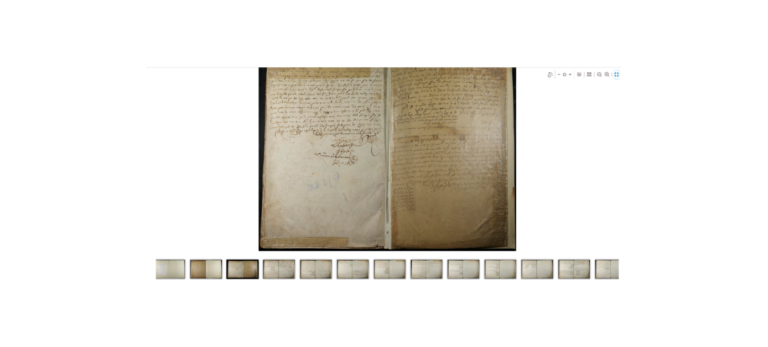
Die im aschkenasischen Europa und Norditalien verbreiteten Pinkasim – Protokollbücher jüdischer Gemeinden – sind zentrale Quellen zur Erforschung der jüdischen
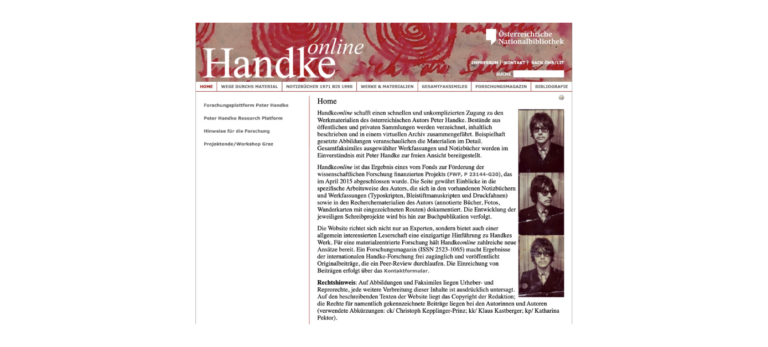
Die Website schafft einen schnellen und unkomplizierten Zugang zu den Werkmaterialien des österreichischen Literaturnobelpreisträgers Peter Handke.
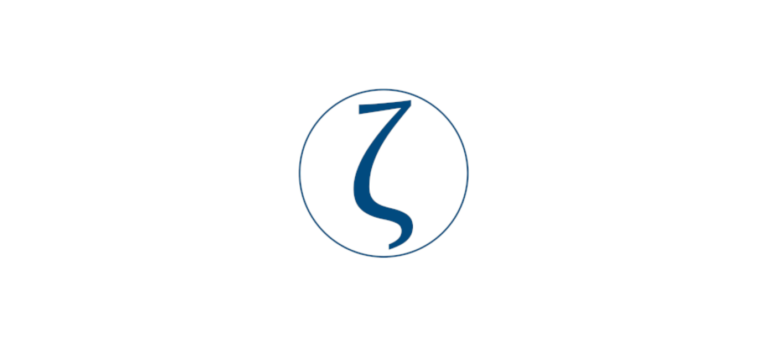
Der Vergleich als methodisches und epistemologisches Paradigma ist in den Geisteswissenschaften tief verankert. Ob in der qualitativen oder quantitativen Forschung
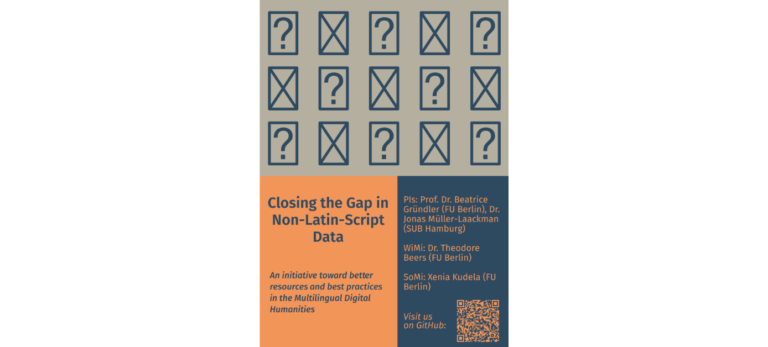
Das Projekt aggregiert Informationen zu digitalen Projekten und Konsortien, die sich im weitesten Sinne mit nicht-lateinischen Schriften beschäftigen. Die gesammelten
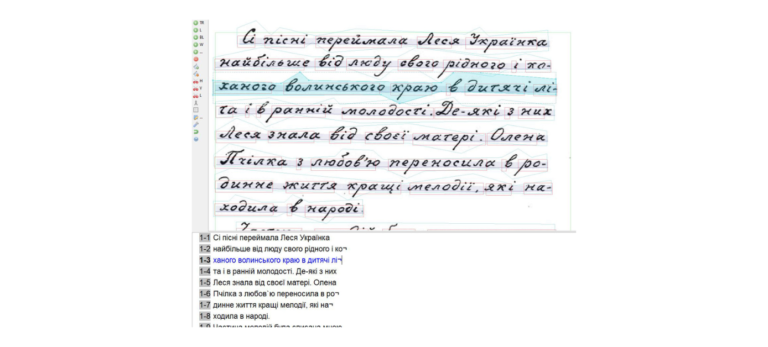
Das MultiHTR-Team setzt die Ergebnisse der ersten erfolgreichen Projektphase (01. Juni 2020 bis 31. Mai 2022) fort, um in der
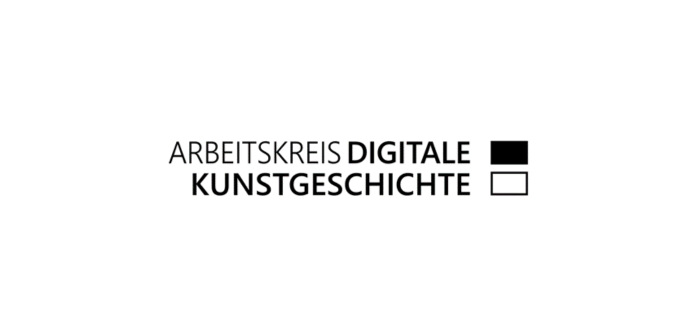
Der Arbeitskreis organsiert das #ArthistoCamp, die Schriftenreihe Computing in Art and Architecture und den #arthistocast – der Podcast zur Digitalen

Der Arbeitskreis organsiert das #ArthistoCamp, die Schriftenreihe Computing in Art and Architecture und den #arthistocast – der Podcast zur Digitalen
Wir verwenden Cookies und ähnliche Funktionen zur Verarbeitung von Daten. Die Zustimmung ist freiwillig und kann jederzeit widerrufen werden.